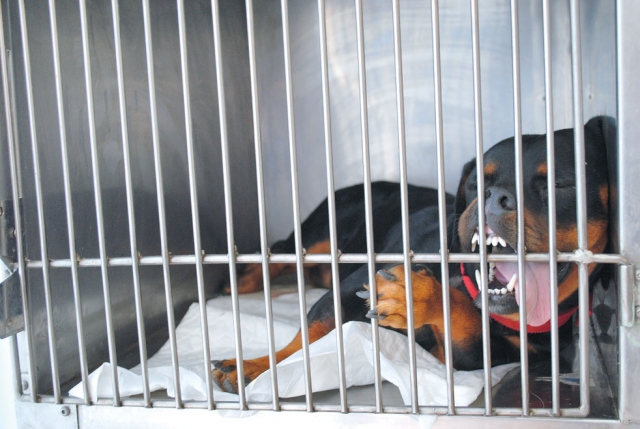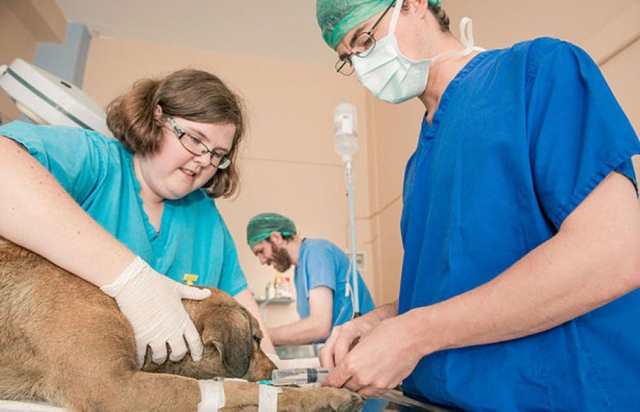photos www.ethnos.gr
This is one of the side effects of the crisis with incalculable results: according to animal protection NGOs, the number of stray animals in Greece has increased dramatically over the past four years, approaching 3 million, i.e. 50% more than in 2011.
The Hellenic Animal Welfare Society is carrying out a programme designed to collect and provide care to stray animals as well as to promote their adoption.
Most of the ferals are pets abandoned by their owners who couldn't look after them. A group of British veterinarians from a posh London clinic arrived at Elia a few days ago with the intention of helping with the neutering of the animals while German vets are contributing voluntary work to authorities in northern Greece. The issue focused international attention after it was reported by the BBC and the Daily Telegraph.

The initiative
It all began this summer when a Londoner came across a stunning picture in Lechaina, Ilia region. Dozens of stray dogs were roaming around the beaches hungry, skinny and sick. He turned to the local vet, doctor Tsangou, who told him that in recent years the problem had spun out of control. After returning to London, the Englishman shared his impressions with the London Vet Clinic and his colleagues, led by Dr. Hugo Richardson, set out to do something about it. They uploaded a description of the Greek situation on the web page adding that they were planning a trip to the country to help homeless animals. Donations started flowing in. Dr. Tsangou lent them her surgery and the London surgeons arrived on 2 September, together with a BBC crew.
"I told them there were people who were having a hard time feeding their children, let alone dogs ... They neutered 67 animals. The conditions were horrible, the dogs were bleeding, they were chock-full of fleas and ticks. Yet these doctors never complained, although they worked in a clinic where only a basic examination of an animal cost 450 pounds," says Dr. Tsangou.

Dr Richardson told Ethnos: "Every day we neutered 10-12 dogs. We saw how much they had suffered. The most astounding thing was that they were no less friendly towards us. They wanted to play with us." The doctor goes on: "I understand the difficulties the Greeks are facing. But municipalities and prefectures have to do something. Rabies presents a serious danger to human health. Now Greece is rabies-free, but I think it's only a matter of time before it rears its ugly head. A great deal of stray dogs have leishmaniasis, which can be transmitted to humans through insect bites; fleas and ticks also cause a number of diseases. It would be a much faster, easier and far cheaper solution if the authorities intervened and resolved the problem now rather than having to deal with 5-10 million homeless animals in a few years' time."

According to the Hellenic Animal Welfare Society people kick out their pets at the slightest impediment. "People tend to avoid neutering their pets, taking them to the vet, or deworming them. Once they find it too difficult or boring – they don't see the dogs as family members, but instead dump them out in the street. There are 3 million homeless dogs and cats in Greece today. Almost all of them are abandoned pets.
The responsibility for the neutering of stray animals lies with the municipalities, but most of them find an excuse in the economic crisis. Nevertheless, according to the animal welfare activists it is not always a matter of money. "A few days ago, three vets came from Germany, along with 20 volunteers. They neutered 764 stray animals in Serres and Drama. In Chania, we made an agreement with vets who will neuter animals belonging to disabled or poor people free of charge. And these are just two examples ..." people from the animal welfare society argue.